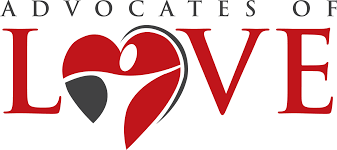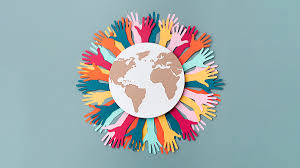The Importance of Equality Rights
Equality rights are fundamental human rights that ensure fairness and justice for all individuals regardless of their race, gender, religion, sexual orientation, or any other characteristic. These rights are essential in promoting a society where everyone has equal opportunities and treatment.
Key Aspects of Equality Rights:
Non-Discrimination: Equality rights protect individuals from discrimination based on various grounds such as race, gender, age, disability, and more. This ensures that no one is unfairly treated or disadvantaged because of who they are.
Equal Opportunity: Everyone should have the same opportunities to succeed and thrive in society. Equality rights help level the playing field by removing barriers to education, employment, healthcare, and other essential services.
Freedom from Prejudice: Equality rights promote a culture of respect and acceptance where prejudice and stereotypes are challenged. It encourages people to embrace diversity and celebrate differences rather than perpetuate harmful biases.
The Impact of Upholding Equality Rights:
When equality rights are upheld and protected, societies become more inclusive, cohesive, and prosperous. Individuals feel valued and respected for who they are, leading to increased confidence and self-worth. This sense of belonging fosters a sense of community and unity among people from diverse backgrounds.
Furthermore, equality rights contribute to social stability by reducing conflicts arising from discrimination and inequality. When everyone is treated fairly and given equal opportunities to succeed, the overall well-being of society improves as a whole.
Challenges in Achieving Equality Rights:
Despite progress in advancing equality rights globally, challenges still exist. Deep-rooted prejudices, systemic inequalities, lack of access to resources, and discriminatory practices continue to hinder the full realization of equality for all individuals.
To address these challenges effectively, it is crucial for governments, organizations, communities, and individuals to work together towards creating a more equitable society. Education, awareness-raising campaigns, policy reforms, and advocacy efforts play vital roles in promoting equality rights for everyone.
In Conclusion:
Equality rights form the cornerstone of a just and inclusive society where every individual is valued and respected. By upholding these fundamental human rights principles, we can create a world where diversity is celebrated, opportunities are accessible to all, and discrimination has no place.
8 Benefits of Equality Rights: Building a Fair and Inclusive Society
- Promotes fairness and justice for all individuals.
- Ensures equal opportunities for success and advancement.
- Fosters a more inclusive and diverse society.
- Reduces discrimination and prejudice in communities.
- Enhances social cohesion and unity among people.
- Contributes to a more stable and harmonious society.
- Empowers individuals to pursue their goals without barriers.
- Creates a sense of belonging and acceptance for everyone.
Challenges and Concerns in Advancing Equality Rights: Navigating Resistance, Implementation, and Unintended Consequences
- Perceived loss of privilege by some individuals who may resist equal rights initiatives.
- Challenges in implementing and enforcing equality laws effectively in all sectors of society.
- Potential for backlash or discrimination against marginalized groups as a response to equality rights advancements.
- Unequal access to resources and opportunities may persist despite legal protections for equality rights.
- Misinterpretation or misapplication of equality rights leading to unintended consequences or conflicts.
Promotes fairness and justice for all individuals.
Equality rights play a crucial role in promoting fairness and justice for all individuals, regardless of their background or characteristics. By upholding equality rights, societies ensure that every person has the same opportunities and treatment, creating a level playing field where merit and effort are the primary determinants of success. This commitment to fairness not only fosters a sense of trust and inclusivity within communities but also helps address systemic inequalities and discrimination, ultimately leading to a more just and equitable society for everyone.
Ensures equal opportunities for success and advancement.
Equality rights play a crucial role in ensuring that individuals have equal opportunities for success and advancement. By removing barriers based on factors such as race, gender, or socioeconomic status, equality rights create a level playing field where everyone can pursue their goals and aspirations without discrimination holding them back. This pro of equality rights not only benefits individuals by allowing them to reach their full potential but also contributes to a more just and prosperous society where talent and hard work are the primary determinants of success.
Fosters a more inclusive and diverse society.
Equality rights play a crucial role in fostering a more inclusive and diverse society by ensuring that individuals from all backgrounds have equal opportunities to participate and contribute. When everyone is treated fairly and given the chance to thrive, it creates a sense of belonging and acceptance among people of different races, genders, religions, and identities. Embracing diversity enriches communities with varied perspectives, experiences, and talents, leading to innovation, creativity, and mutual understanding. In an inclusive society where equality rights are upheld, individuals feel valued for who they are and can fully engage in social, cultural, and economic activities without fear of discrimination or exclusion.
Reduces discrimination and prejudice in communities.
Equality rights play a crucial role in reducing discrimination and prejudice within communities. By upholding the principles of equality and non-discrimination, individuals are less likely to face unfair treatment based on their characteristics such as race, gender, or religion. This leads to a more inclusive and harmonious society where people are valued for who they are rather than judged based on stereotypes or biases. When equality rights are respected, communities become more accepting and respectful of diversity, fostering a culture of mutual understanding and cooperation among individuals from different backgrounds.
Enhances social cohesion and unity among people.
Equality rights play a crucial role in enhancing social cohesion and unity among people by fostering a sense of belonging and mutual respect within communities. When individuals are treated equally and have the same opportunities to thrive, it creates a shared understanding of fairness and inclusivity. This shared commitment to equality helps bridge divides, promote empathy, and build stronger connections among people from diverse backgrounds, ultimately leading to a more harmonious and cohesive society.
Contributes to a more stable and harmonious society.
Equality rights play a crucial role in fostering a more stable and harmonious society by promoting fairness, respect, and inclusivity among individuals. When everyone is treated equally and has access to the same opportunities, it reduces social tensions, conflicts, and divisions based on discrimination. By upholding equality rights, societies can create a sense of unity and cooperation, leading to a peaceful coexistence where diversity is embraced and celebrated.
Empowers individuals to pursue their goals without barriers.
Equality rights empower individuals to pursue their goals without barriers by ensuring that everyone has equal access to opportunities and resources. When people are treated fairly and without discrimination, they can focus on their aspirations and ambitions without being held back by systemic inequalities or prejudices. This pro of equality rights not only benefits individuals in achieving their full potential but also contributes to a more just and inclusive society where everyone has the freedom to thrive based on their abilities and efforts.
Creates a sense of belonging and acceptance for everyone.
Equality rights play a crucial role in fostering a sense of belonging and acceptance for everyone in society. When individuals are treated equally and afforded the same opportunities, regardless of their background or characteristics, it creates an inclusive environment where people feel valued and respected. This sense of belonging not only enhances individuals’ self-esteem and well-being but also strengthens social cohesion by promoting understanding and empathy among diverse groups. Ultimately, upholding equality rights ensures that everyone has a place where they can thrive and contribute positively to their communities.
Perceived loss of privilege by some individuals who may resist equal rights initiatives.
When equality rights initiatives are introduced, some individuals may perceive a loss of privilege and resist the push for equal rights. This resistance can stem from a fear of change or a belief that their status or advantages will be diminished in a more equitable society. These individuals may resist equal rights initiatives out of self-interest, clinging to their perceived privileges at the expense of progress towards a fairer and more inclusive society. Overcoming this con of equality rights requires addressing underlying biases and engaging in dialogue to emphasize that equality benefits everyone by creating a more just and harmonious community for all.
Challenges in implementing and enforcing equality laws effectively in all sectors of society.
One significant challenge in implementing and enforcing equality laws effectively across all sectors of society lies in the complexities of addressing deeply ingrained systemic inequalities and biases. While laws may exist to protect individuals from discrimination, ensuring their consistent application and enforcement in various areas such as education, employment, healthcare, and housing requires a comprehensive approach. Factors like lack of awareness, resistance to change, limited resources for monitoring compliance, and inadequate legal mechanisms can hinder the full realization of equality rights. Overcoming these challenges demands concerted efforts from policymakers, institutions, and communities to strengthen enforcement mechanisms, promote accountability, and foster a culture of inclusivity that upholds the principles of equality for all individuals.
Potential for backlash or discrimination against marginalized groups as a response to equality rights advancements.
One significant con of advancements in equality rights is the potential for backlash or discrimination against marginalized groups. As society progresses towards greater equality and inclusivity, some individuals or groups may resist these changes out of fear, prejudice, or a desire to maintain their perceived privilege. This backlash can manifest in various forms, including increased discrimination, hate speech, and even violence targeted at marginalized communities. It underscores the ongoing challenges in achieving true equality and highlights the importance of addressing deep-seated biases and promoting understanding and acceptance among all members of society.
Unequal access to resources and opportunities may persist despite legal protections for equality rights.
One significant con of equality rights is that, despite legal protections in place, unequal access to resources and opportunities may persist. While laws aim to ensure fairness and non-discrimination, systemic barriers and societal inequalities can still limit individuals’ ability to fully benefit from these rights. Factors such as economic disparities, educational disadvantages, and institutional biases can create hurdles that hinder marginalized groups from accessing the same opportunities as others, perpetuating a cycle of inequality even in the presence of legal safeguards for equality rights.
Misinterpretation or misapplication of equality rights leading to unintended consequences or conflicts.
Misinterpretation or misapplication of equality rights can sometimes result in unintended consequences or conflicts within society. While the intention behind promoting equality is to ensure fairness and justice for all, misunderstandings or misapplications of these rights may lead to situations where certain groups feel marginalized or disadvantaged. It is important to approach the implementation of equality rights with careful consideration and thorough understanding to avoid inadvertently creating new forms of inequality or exacerbating existing tensions. Clear communication, education, and dialogue are essential in addressing any potential misinterpretations or misapplications of equality rights to foster a more harmonious and inclusive society.




